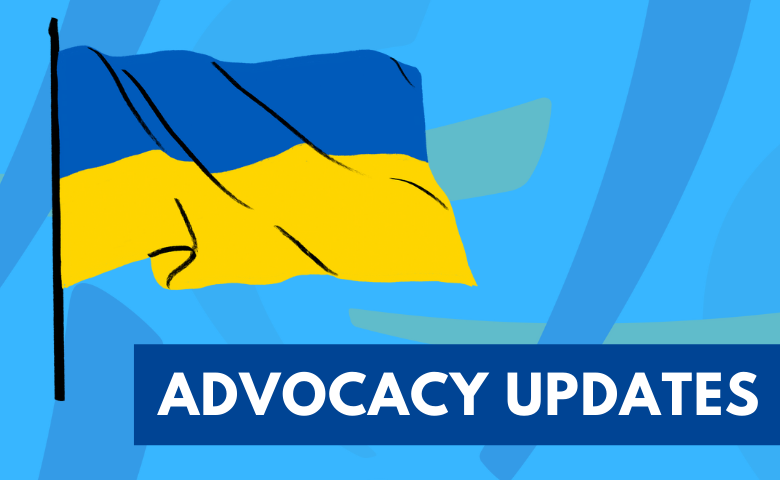Much of what AEC has done in recent weeks in terms of advocacy relates to the war in Ukraine and has been done in joint action with our partner organisations and with our members.
It is encouraging to see the incredible sense of solidarity and hands-on support that refugees from Ukraine receive from all societal sectors upon their arrival in the countries of the European Union and beyond, including from the art and culture sector in general and the higher education sector in particular.
Already on the second day of the war, AEC published a declaration of solidarity on the website and thus became a kind of role model for others, for example regarding the wording we used when stating that we are well aware that the aggressor is not the Russian people but the Russian government.
AEC has co-signed a number of letters of support and declarations of solidarity emerging from the arts and culture sector. After being contacted on the one hand by AEC member institutions who asked us if they could do something for refugee music students, and on the other hand by Ukrainian music students who had either already succeeded to leave the country or still stuck in Ukraine and wanted to leave, the AEC Office set up an exchange platform to make HMEIs and refugee students meet and network.
AEC’s war-related initiative that has presumably been corresponding most closely to a conventional understanding of advocacy, was a joint action to urge Commissioner Mariya Gabriel to issue special regulations allowing to use Erasmus funds to support Ukrainian music students in an unbureaucratic way. This joint action was initiated by ELIA, and meanwhile all key organisations representing higher art education across all art disciplines at European level have joined it. At the time of going to press, there was unfortunately no answer to our letters, but we are still looking forward with confidence, not least because comparable exceptions for the use of Erasmus funds in general education schools have recently been issued.
However, there are still unresolved questions on the matter and sometimes the discussion is controversial. As strong and unquestionable as the solidarity with Ukraine and the Ukrainian people might be, opinions differ about how to behave towards Russia and Russian people, but also about how to deal with Russian music and Russian culture abroad, as well as how to deal with AEC members in Russia and Belarus. As for the latter, AEC was faced with the demand to expel them from the organisation. One of the reasons for these demands was that rectors of some of these institutions signed resolutions supporting the war using the Russian state propaganda narrative. In the end, AEC decision making bodies decided to freeze the membership of Russian and Belarusian AEC members, which can certainly be seen as a compromise, but also as a commitment to still stay in touch even in difficult times and not to take the Russian people, the Russian culture and the Russian language hostage for a policy that is pursued in their names.






